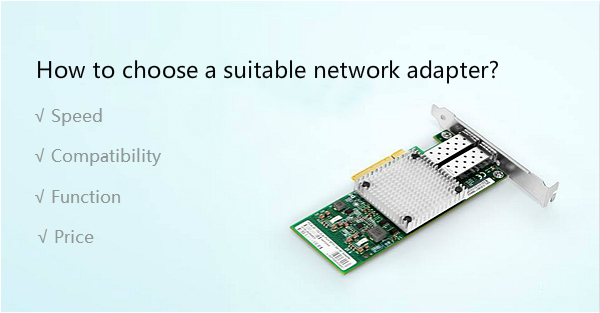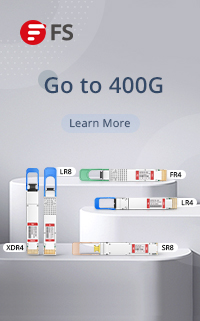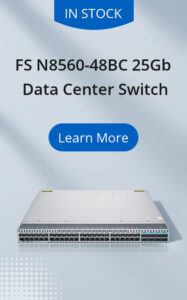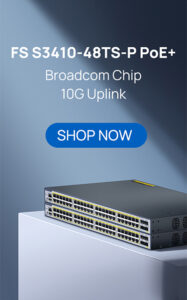As technology develops, higher speed network like 10G or 40G for delivering or downloading data is required everywhere, whether for home use, enterprise applications or cloud computing environments. Fiber network interface card (NIC) plays a vital role in data transmission speed since it is responsible for transmitting signals between the clients (a server or computer) and the internet via cables like LC/SC patch cables, RJ45 cables, etc. Therefore, choosing a suitable network adapter for your network server or PC is very important. But do you know how? Here provides some buying guides and recommends several popular network adapters.
Factors Should Be Considered Before Purchasing
If you are looking for the best suitable fiber network interface card for your network server, some factors are important to be considered.
Make sure that you know the NIC card speed because you are supposed to choose an appropriate card for your network. For example, if your ISP only offers you 1G network speed, you can’t expect to reach 10G speed even using a 10G network adapter in your PC. Thus, the NIC card with certain transmission rate should be linked to the network with the exact same transmission rate. Today, for the most part, any decent network cards can operate at least one Gigabit of data throughout, which may serve all home networks. However, if you work for data centers, 10G/40/100G network cards may satisfy your high-performance computing or virtual machines operations.
A suitable adapter must be compatible with the existing bus interface, operating system and cable connector. Check the bus interface first, make sense whether it’s PCI, PCI-X or PCIe (more information of PCIe network adapter types, you can read here), and choose the matched one. Then check if the fiber network interface card supports your operating system, like Windows or Linux. The supporting OS will be listed on the product Internet page or instruction book of the adapter product. Figure this out before buying, otherwise, the adapter you have bought will be failed to work. Plus, you also need to focus on the connector compatibility. LC/SC connector or SFP+/QSFP+ ports are the common connector types of fiber NIC cards, and you should pick one according to the fiber patch cables or optical modules that used for connecting your server or PC to the internet. For instance, if your working cable is an LC to LC fiber patch cable, you should choose the network adapter with LC port.
It’s necessary to make sure that the functions of NIC card can satisfy your applications. For example, if you just want it to offer access for the internet, all the NIC cards can do that. But if you need it to support advanced features like FCoE (Fiber Channel over Ethernet), iSCSI or PCI-SIG implementation, you need to check the instruction book to see whether it supports the function that you require.
NIC card price is always a factor that should not be ignored. The cards from different brands are priced diversely. A 10G dual port PCIe 2.0 x8 adapter from HPE will cost about 250 dollars, while FS offers a more favorable price, 150 dollars for the same product. And FS provides one-year warranty for its fiber network interface card series, which would be a plus point. Therefore, consider your budget before making the final decision.
Fiber Network Interface Card Recommendation
A most trustworthy seller will offer you the good quality along with the favorable price available on the market. FS is definitely a good choice to buy network adapters. It offers a wide range of fiber network interface card, including 10/25/40G PCIe adapters offering a versatile network solution for home and business users alike. The following table lists the specifications of PCIe adapters from FS.
All those network adapters adopt high-performance Intel® chips, and the controller chips help ease the pressure of the CPU data processing. This truly supports the efficient transmission. The adapters support VLAN, QoS policy, load balancing, flow control, and a wide range of operating systems like Linux RHEL4/RHEL5/SLES9/SLES10, windows server, etc. They are available in 10/25/40G transmission speed, which can address the demanding needs of the next-generation data center for virtualization and scalability. And to ensure the compatibility of the adapter connections, FS also provides the compatible transceivers and fiber cables for the network adapters.
Conclusion
Before buying a fiber network interface card, it’s better to consider the transmission speed, compatibility, brand and price factors. This may help you quickly figure out the best network adapter. For purchasing high-quality NIC cards with favorable price, please visit FS.COM. It’s a one-stop choice for your network card’s demands, and 24/7 customer service and technology support are also available here.





